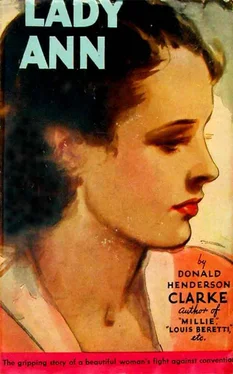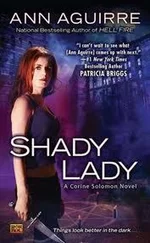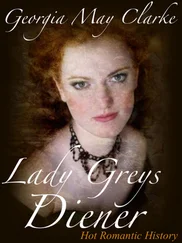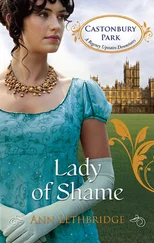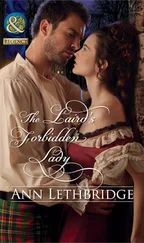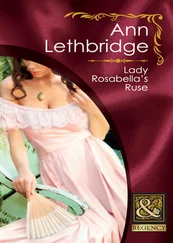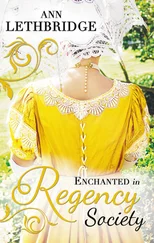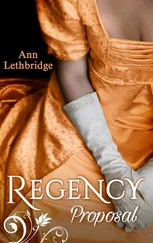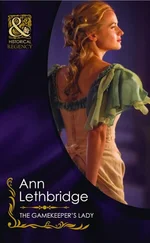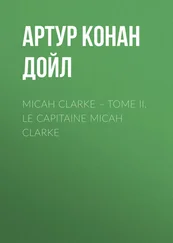Donald Henderson Clarke - Lady Ann
Здесь есть возможность читать онлайн «Donald Henderson Clarke - Lady Ann» — ознакомительный отрывок электронной книги совершенно бесплатно, а после прочтения отрывка купить полную версию. В некоторых случаях можно слушать аудио, скачать через торрент в формате fb2 и присутствует краткое содержание. Жанр: unrecognised, на английском языке. Описание произведения, (предисловие) а так же отзывы посетителей доступны на портале библиотеки ЛибКат.
- Название:Lady Ann
- Автор:
- Жанр:
- Год:неизвестен
- ISBN:нет данных
- Рейтинг книги:5 / 5. Голосов: 1
-
Избранное:Добавить в избранное
- Отзывы:
-
Ваша оценка:
- 100
- 1
- 2
- 3
- 4
- 5
Lady Ann: краткое содержание, описание и аннотация
Предлагаем к чтению аннотацию, описание, краткое содержание или предисловие (зависит от того, что написал сам автор книги «Lady Ann»). Если вы не нашли необходимую информацию о книге — напишите в комментариях, мы постараемся отыскать её.
Lady Ann — читать онлайн ознакомительный отрывок
Ниже представлен текст книги, разбитый по страницам. Система сохранения места последней прочитанной страницы, позволяет с удобством читать онлайн бесплатно книгу «Lady Ann», без необходимости каждый раз заново искать на чём Вы остановились. Поставьте закладку, и сможете в любой момент перейти на страницу, на которой закончили чтение.
Интервал:
Закладка:
They walked toward the sitting room. She stood, dazed. He said:
“Won’t you sit down?”
She sat down on the sofa and he arranged two eiderdown pillows, one covered with green silk, shot with gold, and the other covered with yellow silk, behind her. But instead of leaning back against them, she sat up straight. She said:
“Listen.”
A horse and buggy stopped outside. She went to the window and looked. Dr. Benham was just getting out of his buggy. He reached in and got the hitching strap, snapped it on Sam’s bridle and knotted it deftly to the ring in the iron hitching post. Nobody was in the buggy with him. Ann didn’t have to be told any more. She knew her father was dead.
Alonzo drove Dr. Benham home. The doctor puffed his cigar, spat into the dust, and said:
“Pretty tough, wasn’t it?”
“Gee! It was rotten,” Alonzo said.
The doctor nibbled at a loose bit of leaf on the end of his cigar, bit it through, and got it stuck on the hair on his lower lip. He brushed it off with his gloved hand and said:
“Elihu always struck me as a man with a pretty good head.”
“Always seemed so to me,” Alonzo agreed.
“Never struck me as the kind that would go looking for a gas leak with a lighted match,” Dr. Benham said. “I always thought nobody but a first-class idiot would do that.”
“I’d think so,” Alonzo said.
The doctor shook his head, sighed, and said:
“But I knew Elihu Steele ever since he was a boy. He was one of the finest men you’d ever hope to meet, Alonzo. He wasn’t the kind that would kill himself and leave a little girl all alone in the world.”
“He didn’t strike me as that kind either,” Alonzo murmured.
Dr. Benham, whose head was just beginning to show the tremor incident to age, made the trembling emphatic and conscious again. He said:
“It’s a funny thing. I can’t figure it out unless it was this way. Elihu was pretty miserable but he wouldn’t commit suicide. On the other hand he was so depressed that he wasn’t thinking normally. He wasn’t alert. The policeman in his brain was asleep. The policeman let him light that match. It was something mysterious that we don’t know about, inside of Elihu, that killed him.”
“I don’t just understand,” Alonzo said.
Dr. Benham shook his head, and said:
“And the older you get, son, the less you will understand.”
Sam stopped in front of the entrance to the offices in the Pease Block. The doctor grunted and half arose, gripping the iron guard rail of the seat firmly in his right hand as he turned his back to the horse and groped with his left foot for the buggy step. On the sidewalk he stopped a moment, drew a fresh cigar from his pocket, and lighted it on the stub of the old one. He threw the old stub away and straightened his shoulders and said:
“Well, this has been quite a day. Good night, Alonzo.”
“Good night, Doctor.”
Dr. Benham’s face looked tired when he went to bed in the little room off his private office. He had slept in this room for thirty years. When he grew tired of the carpet, or it became worn, he merely had a new carpet tacked down over the old one. According to Mrs. Aaron Bentley, who knew most that was going on in Eastham, there were eight layers of carpet in the bedroom. The single window never had been opened, winter or summer, during the doctor’s occupancy. He believed that night air was conducive neither to health nor longevity.
He stripped off his light woolen union suit and pulled his flannelette nightgown, gray with pink stripes, over his head. He went to a medicine cabinet and took down a can of chloroform. He poured some of the contents over a handkerchief, carefully restoppered the can, and replaced it on the shelf. Then he lay down on the bed, pulled sheet and double blanket up to his chin and draped the chloroform-drenched bit of linen over his face.
That was the way Dr. Benham always went to sleep.
Chapter Four
Ann went to live with Clarence and Rebecca Smith on the Newtown Road, in Southfield, about a mile from Southfield Centre, and three miles from Eastham, of which it was a part. That was really out in the country. The house, as was the case with most houses in that part of the world, was white with green shutters. The front door which opened into a front hall and parlor seldom was used except for weddings and funerals. The side door, which opened directly into the dining room, shared popularity with the kitchen door, which was just off the woodshed and nearest to that establishment of fitted boards painted green, with a door on a latch, with a crescent carved over it and sunflowers growing beside it. When a member of the household was about to visit this spot, he, or she, said:
“I am going to call on the Widow Jones.”
Ann used to wonder if the Fred Joneses, who lived down in the hollow, were accustomed to say on similar occasions:
“I am going to call on the Widow Smith.”
But she never did learn about that.
There were four apple trees on the south side of the house. These apple trees all were Baldwins. On the north side of the house, however, was the real orchard, where were many varieties of apples, including Early Harvests and Golden Sweets, Red Astrakhans and Gravensteins which ripened early, and Northern Spies, Baldwins, Pound Royals, and Russets. A crabapple tree stood back of Mrs. Jones’s, to the west, and there also were peach, pear and plum trees on that side, which was referred to as “out back.”
To the northeast of the house was a big cherry tree which bore plump, black juicy fruit—Ox Hearts. Clarence used to shoot blackbirds out of that tree with his double-barreled twelve-gauge shotgun. The blackbirds appreciated the superior quality of those cherries too.
Next to the kitchen on the extreme west of the house was the woodshed. Next to the woodshed was the chicken coop, in which were two score hens and a dozen or so chickens for the table. And next to the chicken coop was the red barn in which were kept a dozen cows. The milk house was just off the barn to the north, near the ice house.
The ice house was a rough timber structure, built over a square hole in the ground. Into this in the winter were dumped blocks of ice cut from Carter’s Pond. The ice was covered thick with sawdust. In the summer the blocks were dug out and cut to required size for the ice box in the house, or dumped whole into the brick pool in the milk house. As soon as the cows were milked the big cans were sunk under the water with the cakes of ice. It always was chilly in the milk house, even on the hottest days in July and August. And the milk from the cans was cold.
Clarence had a brown-and-white water spaniel with long ears and soft brown eyes. He called the dog Tack because immediately after he had brought him home as a puppy six years before, the little fellow had swallowed a tack.
Rebecca and Clarence attributed to Tack many human qualities. They not only spelled out words in front of Tack when they didn’t wish him to know what they were talking about but they even went to the trouble of spelling many words backward. For instance, Tack loved to go to Eastham because such trips usually included a visit to Bert Cooper, the butcher.
Bert’s shop was in the line of shops and buildings in the main street of which the Pease Block occupied more than its share of space. It was cool in Bert’s, with its sawdust floor, its meat hung in rows, or displayed on the counter, its scarred chopping block, its odor of animal flesh, and its many pieces of fly paper on which flies eternally were buzzing and struggling in death throes. It was a dog’s paradise.
Bert admired Tack and fed Tack hugely. Tack tolerated Bert, who, unlike the popular idea of what a butcher should be, was a blond, partly bald, with blue eyes peering through gold-framed spectacles, a clean-shaven face, a lean and sinewy torso covered by a loose white coat, and his wrists and forearms protected by straw gauntlets. Bert generally had a rag tied around one of his fingers. He had a penchant for cutting himself every so often with one of his razor sharp knives. On account of Tack’s delight in going to Eastham, and his despondency on being left at home, Clarence and Rebecca would spell Eastham and other suggestive words backward. Clarence would say, for instance:
Читать дальшеИнтервал:
Закладка:
Похожие книги на «Lady Ann»
Представляем Вашему вниманию похожие книги на «Lady Ann» списком для выбора. Мы отобрали схожую по названию и смыслу литературу в надежде предоставить читателям больше вариантов отыскать новые, интересные, ещё непрочитанные произведения.
Обсуждение, отзывы о книге «Lady Ann» и просто собственные мнения читателей. Оставьте ваши комментарии, напишите, что Вы думаете о произведении, его смысле или главных героях. Укажите что конкретно понравилось, а что нет, и почему Вы так считаете.
